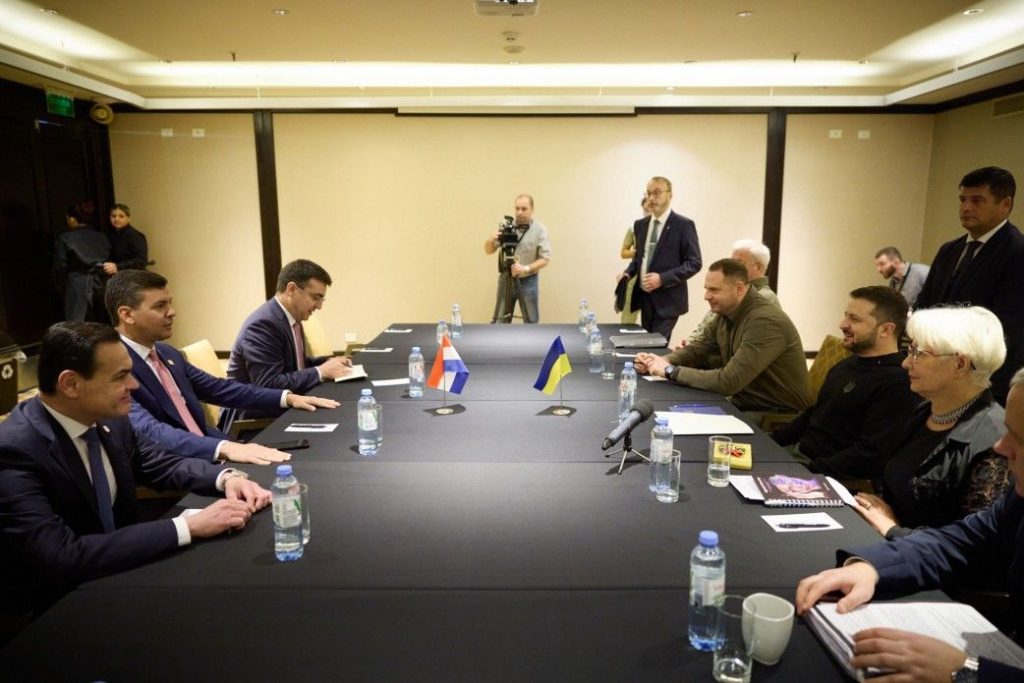Paraguay recently became the 95th country to sign the global peace summit joint communique, joining a list of nations that have endorsed Ukraine’s vision for peace. The summit, hosted by Switzerland in June, saw representatives from around 100 countries and organizations in attendance. The final joint communique was signed by 78 states and four organizations on June 16, with more countries adding their signatures since then. The communique outlined various goals, including returning the Russian-occupied Zaporizhzhia Nuclear Power Plant to Ukraine’s control, ensuring food supply in Ukraine, securing access to sea ports, and releasing prisoners of war and deported Ukrainian children.
Russia was notably not invited to participate in the inaugural global peace summit in June. Despite hopes for Russian participation in a second summit planned by Kyiv before the end of 2024, Moscow has indicated that it will not be involved in any future iterations of the Swiss-hosted peace summit. The obstacles to Russian involvement in the peace process further complicate the ongoing conflict and peace negotiations in Ukraine. Ukraine’s President, Volodymyr Zelensky, has expressed a desire to deepen political dialogue with South American countries following Paraguay’s endorsement of the peace formula and the UN Charter, signaling a broader international support for Ukraine’s peace efforts.
In the latest developments on September 27, Zelensky met with former US President Donald Trump in New York, presenting him with his ‘victory plan’ for ending the war in Ukraine. Trump reiterated his views on ending the war as soon as possible, indicating ongoing interest in resolving the conflict. Reports also emerged about bolstering defenses on the Crimean bridge with underwater drone traps and warnings from US intelligence about risks associated with permitting Ukraine’s long-range strikes. These developments highlight the complexities and challenges surrounding the conflict in Ukraine, as various parties navigate peace negotiations and security concerns in the region.
The global peace summit hosted by Switzerland in June aimed to bring together countries and organizations to support Ukraine’s vision for a comprehensive, just, and lasting peace. The joint communique signed by numerous nations outlined key goals, including the return of occupied territories to Ukraine, ensuring access to vital resources, and the release of prisoners of war. Despite the absence of Russia from the inaugural summit and uncertainties about its participation in future summits, Ukraine continues to strive for broader international support and engagement in the peace process. Plans for a second global peace summit before 2024 reflect Kyiv’s commitment to advancing peace efforts on the global stage.
Paraguay’s recent endorsement of Ukraine’s peace formula adds to the growing list of countries supporting the nation’s peace initiatives. President Zelensky’s engagement with world leaders, including his meeting with former US President Trump, underscores ongoing diplomatic efforts to resolve the conflict. The challenges posed by Russia’s stance on future peace summits and security concerns in the region highlight the complex dynamics at play in the Ukraine conflict. As Ukraine navigates these challenges, the country remains focused on advancing its peace agenda and seeking global solidarity in its quest for a peaceful resolution to the conflict. The international community’s response to Ukraine’s peace initiatives will continue to shape the trajectory of the conflict and efforts towards lasting peace in the region.


